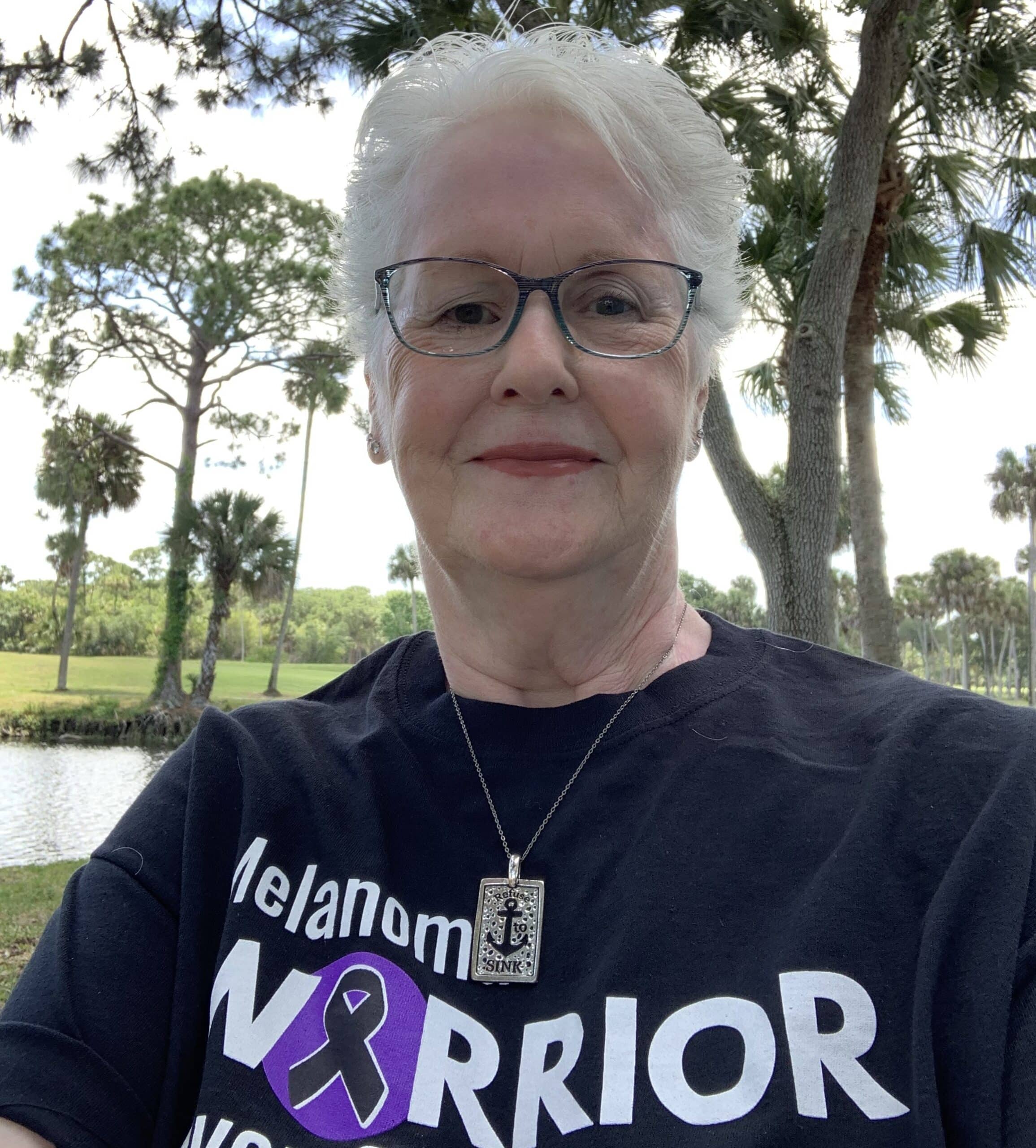NORD is proud to share this patient story in recognition of Rare Cancer Day 2023. Learn about Rare Cancer Day here.
My name is Toni, and in 2015, I was diagnosed with stage IV sinonasal mucosal melanoma. I was told that I had about six months to live. After several unsuccessful appointments with local doctors who had never heard of this rare cancer, I finally found an oncology specialist at Augusta University Head and Neck Cancer Center in Augusta, Georgia. His knowledge on mucosal melanoma saved my life and he quickly implemented a care plan of surgery followed by radiation. I remained cancer-free for one year until I developed metastases in my brain, lungs, and kidney. I began a new immersing treatment of immunotherapies but unfortunately did not respond to any of the drugs. At the same time, my husband and I retired and moved to Florida, and I established care at the Orlando Health Cancer Institute.
It was very difficult to find anyone who was familiar with this rare cancer. The little bit of information on the internet was outdated and offered little hope for survival. I had to become my own advocate and persist in finding the best care options that would result in a better outcome. There is no standard of care for mucosal melanoma, and doctors had little to offer in treatment or hope. After beginning treatment in Orlando, my oncologist offered me the opportunity to participate in a clinical trial for tumor-infiltrating lymphocytes (TIL) therapy. Since there were no other treatment options, I eagerly agreed to participate. After meeting the qualifications, I received my treatment in April 2018. At my first post-treatment scans, there was evidence of significant shrinkage in all of my tumors. In six months, I was cancer free and remain so today!
This rare cancer is often missed or misdiagnosed by doctors who are not familiar with it, and the struggle to find effective treatment options for mucosal melanoma continues. There is no genetic consistency among patients, and although there are many new immunotherapy options for treatments, very few have been shown to have any effect on mucosal melanoma.
Today, I am a patient survivor and advocate. In the past few years, a mucosal melanoma community has emerged through social media and reaches around the world. I am passionate about using my experience for peer-to-peer mentoring, as well as networking with other organizations that can help us find better options for treatment and survival. Recently, a foundation was established to assist newly diagnosed patients and their caregivers with tools and research to help them navigate their journey. We have also launched a website, created by patients for newly diagnosed patients, with up-to-date information and resources. This community is raising our collective voice to advance awareness among family practice doctors, ENTs, dentists, GYN and gastroenterology specialists who are the first line of diagnosis for better recognition and earlier diagnosis. We want to gain the attention of researchers who will take an interest in our rare cancer and work to develop better treatment options.




